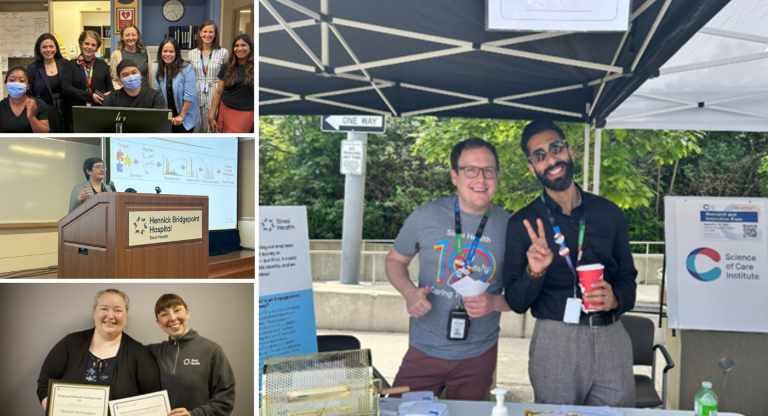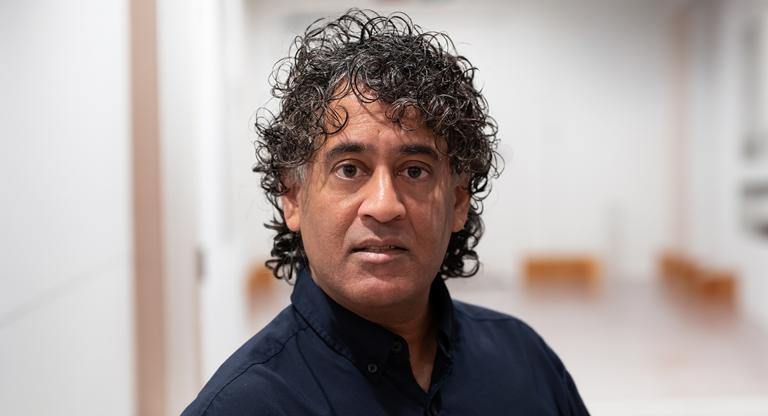Empowering patients with expert insights from Mount Sinai Fertility

As we enter Fertility Awareness Week, it’s important to recognize that around one in six individuals globally face fertility challenges. Open discussions about fertility are increasing, making it essential to address common questions and deepen our understanding of this critical health matter.
We connected with the experts at Mount Sinai Fertility, to answer some of the most commonly asked questions about fertility, fertility treatments and the fertility journey.
At what point should an individual or couple consider consulting a fertility specialist?
Dr. Vanessa Bacal, Reproductive Endocrinology and Infertility Specialist:
The purpose of speaking with a fertility specialist is to empower patients to make the decisions that meet their reproductive goals.
Understanding when to seek the guidance of a fertility specialist can be a key step in the journey to parenthood. Our goal at Mount Sinai Fertility is to empower patients with information and support, helping them to make informed choices about their reproductive health.
Below are some of the common situations in which one might consider scheduling a consultation with a fertility specialist.
- Extended Time Trying: If you’ve been attempting to conceive for over a year without success, or six months if you’re over 35,
- Planning as a Single Parent or Same-Sex Couple: If you’re looking to start a family and need donor sperm, donor eggs, or a gestational carrier, we can provide the guidance and support you need.
- Recurrent Miscarriages: Experiencing two or more miscarriages may indicate underlying fertility issues that a specialist can help address.
- Future Family Planning: If you’re unsure about when or if you want children, but want to understand your fertility or consider preserving your fertility through egg or sperm freezing, we can help guide you.
- Genetic Concerns: If you or your partner carry a genetic condition and wish to avoid passing it on to your children, specialized fertility options can be discussed.
- Medical Treatments Impacting Fertility: If you’re facing treatments for conditions like cancer or surgeries that could affect your fertility, consider consulting about fertility preservation before beginning treatment.
What advice do you have for someone who is just beginning to navigate fertility challenges?
Dr. Nigel Periera, Reproductive Endocrinology and Infertility Specialist:
The first step in navigating fertility challenges is to acknowledge that one is ready to seek assistance. One in six people are affected by fertility issues, yet very few speak about this openly. However, it is surprising how many friends or relatives have undergone some type of fertility work-up or treatment. Outlined are some things to consider when starting beginning your fertility journey:
It is important to mention to your family physician that you are planning to start a family. This may prompt further discussions about current health and lifestyle. An initial set of blood tests and/or imaging may be ordered. There may be certain situations where direct referral to a fertility doctor may be necessary.
Having an open conversation with a fertility doctor is important. This may include somewhat uncomfortable topics such as lack of sexual desire, painful intercourse, or the inability to maintain an erection. Mount Sinai Fertility is committed to a safe, non-judgmental approach to care.
It is also important to discuss an ideal family size, which will often dictate the type of future fertility treatment. Many are relieved to learn that little to no treatment is required to conceive. Others may finally understand the root cause of their fertility issues, which puts them at ease.
The world of fertility has technical jargon. I suggest taking notes and ask for additional reading material when needed
Finally, since fertility treatments may require multiple visits and administration of expensive medications, practical considerations such as travel time to the doctor’s office, duration of individual visits, and insurance coverage/costs should be taken into account.
How do you approach creating a personalized fertility treatment plan for your patients?
Dr. Kimberly Liu, Reproductive Endocrinology and Infertility Specialist, Mount Sinai Fertility:
Each patient and couple’s fertility journey are unique, and we want to ensure patients receive personalized care at each step of the process. This starts at the initial consultation with an assessment and tailored investigations based on the person’s history. We utilize our patient portal to allow patients to provide us detailed information about their medical and reproductive history. It is also important to understand the person’s goals, values and priorities, including their desired family size. Once the patient has completed their initial investigations, the physician will review their investigations and discuss any issues which are identified. The physician can discuss specific recommendations and tailored treatment options with the patient, including chances of success based on each patient’s situation.
Each treatment cycle is unique. There are many components to an IVF which must be personalized for each patient. This includes the dose of medications, protocols, fertilization process, and additional assessments or genetic testing. A thorough discussion between the patient and physician is required to ensure the individualized plan reflects the patient’s history, reasons for infertility, investigations and reproductive goals. During the cycle, the team uses the patient’s individualized care plan to guide the treatment cycle. In addition, monitoring during the cycle provides further opportunities for adjustments based on the treatment progress. Personalized and individualized care are essential to ensuring patients receive the best chances of success.
For more information about assisted reproduction and the various treatment options, visit the Mount Sinai Fertility website.












